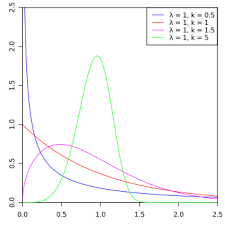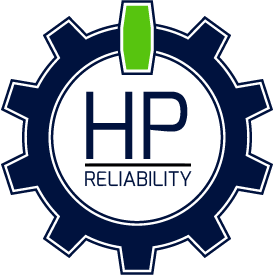An Overview of the Reliability Engineering Discipline
 Almost all maintenance, reliability or asset management professionals have heard of reliability engineering. But what is reliability engineering? A quick google search will return the following definition “Reliability Engineering is engineering that emphasizes dependability in the lifecycle management of a product. Dependability, or reliability, describes the ability of a system or component to function under stated conditions for a specified period of time.”
Almost all maintenance, reliability or asset management professionals have heard of reliability engineering. But what is reliability engineering? A quick google search will return the following definition “Reliability Engineering is engineering that emphasizes dependability in the lifecycle management of a product. Dependability, or reliability, describes the ability of a system or component to function under stated conditions for a specified period of time.”
This definition seems simple enough in the fact that the reliability engineer using engineering techniques and analysis to improve the dependability or reliability of a product, process, or system. The primary objectives of reliability engineering are;
- To apply engineering knowledge and specialist techniques to prevent or to reduce the likelihood or frequency of failures.
- To identify and correct the causes of failures that do occur despite the efforts to prevent them.
- To determine ways of coping with failures that do occur, if their causes have not been corrected.
- To apply methods for estimating the likely reliability of new designs, and for analyzing reliability data.
The engineers who work to improve the reliability of a product, process, or system are vital to ensuring maximum life and lowest life cycle costs. While not a regulated engineering profession, such as civil, mechanical, or electrical engineers, there is a certification available which is regarded as the gold standard in reliability engineering. That certification is the CRE or Certified Reliability Engineer, which is administered by the American Society of Quality (ASQ).
A Certified Reliability Engineer “is a professional who understands the principles of performance evaluation and prediction to improve product/systems safety, reliability and maintainability.” So what must one know and what topics are covered under the umbrella of reliability engineering?
The Reliability Engineering Body of Knowledge
The discipline is vast, and no one person could ever become an expert in all of the topics contained within it. Below are the various topics found within reliability engineering;
-
Reliability Management
- Strategic Management
- Reliability Program Management
- Ethics, Safety, and Liability
-
Probability and Statistics for Reliability
- Basic Statistical Concepts
- Statistical Inference
-
Reliability in Design and Development
- Reliability Design Techniques
- Parts and Systems Management
-
Reliability Modeling and Predictions
- Reliability Modeling
- Reliability Predictions
-
Reliability Testing
- Reliability Test Planning
- Testing During Development
- Product Testing
-
Maintainability and Availability
- Management Strategies
- Maintenance and Testing Analysis
-
Data Collection and Use
- Data Collection
- Data Use
- Failure Analysis and Correction
As one can see the topics covered are vast and can go very deep. The summary above does not go into detail, as, the topic of reliability testing contains HALT, HASS, and various other testing techniques. Each one of these topics has entire textbooks dedicated to them. For an in-depth review of these topics, the ASQ does publish a Body of Knowledge for reliability engineering.
One common theme found throughout reliability engineering is the use of statistics. As maintenance, reliability or asset management professionals, we do not have the luxury of being able to test and push our assets to failure over and over for testing purposes. This fact alone guarantees that for us to be successful in reliability improvements, that we need a solid understanding of statistics. We do not need to be statisticians, but a fundamental understanding is required.
Over the course of the next few weeks, a few select topics within Reliability Engineering will be explored. I plan on covering some of the topics from the BoK, the role of software in reliability engineering, and a few examples of reliability engineering at work using reliability engineering software from BQR. I do ask that if you want a topic from the BoK covered or a specific example of reliability engineering at work to please let me know at [email protected].
Remember, to find success; you must first solve the problem, then achieve the implementation of the solution, and finally sustain winning results.
I’m James Kovacevic
Eruditio, LLC
Where Education Meets Application
Follow @EruditioLLC
References;
[/fusion_builder_column][/fusion_builder_row][/fusion_builder_container]

Hi James, great article as usual. I wrote a similar piece a while back but it was a different focus. Do you know how to influence the definition of Reliability Engineering in Wikipedia? I think as a community the current definition needs to be broadened in order to reflect our reality.
https://www.linkedin.com/pulse/what-reliability-engineering-robert-bob-latino/
I’ll check out your articles on the specific topics within reliability engineering and get back to you later on any that I want elaboration on, thanks for the help James.